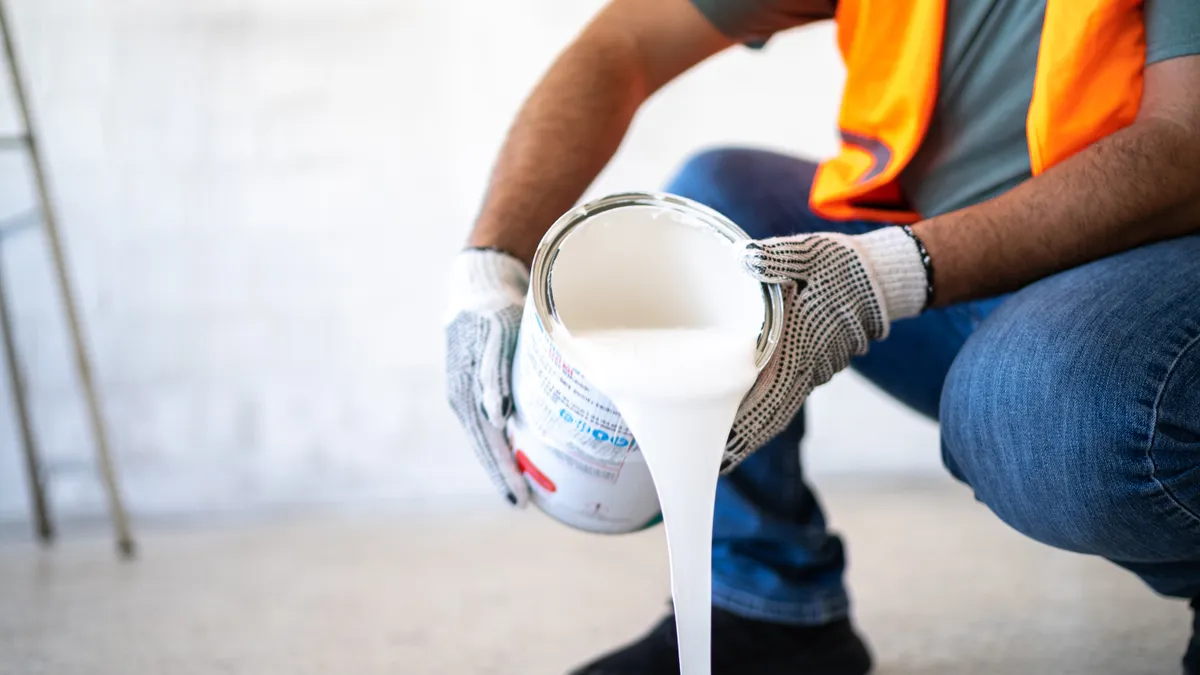Dive Brief:
- Paint and coatings maker RPM International is reducing production at some of its plants as it contends with softening demand, Vice President and CFO Rusty Gordon noted on a Q2 earnings call.
- The reductions are meant to help lower elevated inventories, which rose in recent months as customers began pulling back on orders after bulking up amid supply chain snags, CEO Frank Sullivan said.
- The construction sector has seen particularly weakened demand, the company noted. Industrial clients, such as manufacturers RVs, door and cabinets manufacturers, have also extended holiday production shutdowns into January to work through their own inventory backlogs.
Dive Insight:
As businesses rightsize their inventory levels amid volatile supply chain environments, suppliers are feeling the effects. With more customers cutting their own inventory levels, RPM is responding in kind.
"With a settling down of supply chains, which I think [are] back to normal, now you are seeing people try and modulate back into a normal inventory level and a refocus on working capital position back to something that’s more normal and more stable and more predictable," Sullivan said.
Considering these factors, the CEO added it could take another six to nine months to get inventory "back to where we want," even as the company sees a shift from elevated raw materials now into finished goods.
"It’s just a slow and steady progression," he said. "But you are already seeing this. Our inventory levels quarter-over-quarter on a relative days basis haven’t improved much."
Others in the construction material space have faced similar challenges as of late. Paint maker PPG noted in its October earnings call that the company was prioritizing destocking in the months ahead.
"Given the broadening elongation of supply globally, we are now able to destock, including reducing or canceling raw material orders and reducing safety stock closer to historic levels," PPG Chairman Michael McGarry said during the company’s Q3 call. "We are prioritizing further inventory reductions in the fourth quarter.”














